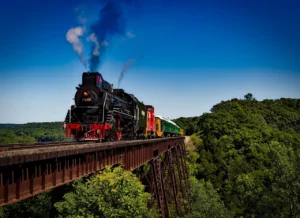The Coachella Valley Music and Arts Festival, commonly referred to as Coachella, is a world-renowned music and arts festival held annually in Indio, California. Founded in 1999 by Paul Tollett and Rick Van Santen, the festival has grown from a small, one-day event to a two-weekend extravaganza, attracting hundreds of thousands of attendees from around the globe. In this article, we’ll delve into the history, lineup, and overall experience of Coachella, exploring what makes it one of the most anticipated and iconic music festivals in the world.
History of Coachella
Coachella’s humble beginnings date back to 1999, when Tollett and Van Santen, then-employees of the concert promotion company Goldenvoice, envisioned a festival that would bring together the best of alternative rock, electronic music, and hip-hop. The first Coachella festival took place on October 9-10, 1999, at the Empire Polo Club in Indio, California. The inaugural lineup featured a mix of established acts like Rage Against the Machine and Beck, alongside up-and-coming artists like Limp Bizkit and The Chemical Brothers.
Despite initial concerns about the festival’s viability, Coachella proved to be a resounding success, attracting a crowd of around 20,000 attendees. Encouraged by the response, Tollett and Van Santen decided to make Coachella an annual event, gradually expanding the festival to two days (2001) and then three days (2002). In 2007, Coachella expanded further by introducing a second weekend, allowing more fans to experience the festival and cementing its status as a global music phenomenon.
Lineup and Programming
Coachella’s lineup is undoubtedly its crowning jewel, featuring a diverse range of artists from various genres. Over the years, the festival has hosted some of the biggest names in music, including Madonna, Radiohead, Prince, and Beyoncé. The lineup is carefully curated to cater to a wide range of musical tastes, ensuring that there’s something for everyone. In recent years, the festival has expanded its reach to include international acts, bringing a global flavor to the event.
In addition to its live music performances, Coachella also showcases cutting-edge art installations, comedy sets, and interactive experiences. The festival’s iconic Ferris wheel and food trucks have become staples of the event, providing attendees with a unique and indulgent experience. Art has always played a significant role at Coachella, with large-scale installations and sculptures that transform the festival grounds into a visual wonderland. These installations often reflect contemporary issues and themes, providing a thought-provoking backdrop to the musical performances.
Festival Experience
Attending Coachella is a sensory overload in the best possible way. The festival grounds are transformed into a vibrant, pulsating oasis, complete with colorful art installations, giant video screens, and an eclectic array of food and drink vendors. The air is filled with the sweet scent of BBQ and the sound of thumping basslines, creating an electric atmosphere that’s impossible to resist.
As you navigate the grounds, you’re surrounded by a sea of fashionable festival-goers, all dressed in their finest attire (read: elaborate costumes, neon colors, and plenty of flower crowns). The energy is infectious, and it’s not uncommon to see strangers turn into fast friends over a shared love of music and good vibes.
The Weekend of Music and Memories
Coachella is more than just a music festival – it’s an experience that transcends the music itself. The weekend becomes a chance to connect with like-minded individuals, to discover new artists, and to create lifelong memories. Whether you’re dancing in the crowd to a high-energy set or simply basking in the sun with a cold drink, Coachella is an event that stays with you long after the music ends.
Many attendees take the opportunity to camp on the festival grounds, further enhancing the communal aspect of the event. The camping experience adds an extra layer of adventure, with festival-goers setting up elaborate campsites, hosting impromptu parties, and forming tight-knit communities. The sense of camaraderie and shared experience is palpable, making Coachella a unique and unforgettable event.
The Evolution of Coachella
Over the years, Coachella has evolved to stay relevant in the ever-changing music landscape. The festival has embraced technological advancements, incorporating virtual reality experiences, live streaming of performances, and interactive installations. These innovations have allowed Coachella to reach a wider audience and enhance the overall festival experience.
In recent years, sustainability has become a major focus for Coachella. The festival has implemented various initiatives to reduce its environmental impact, including waste reduction programs, water conservation efforts, and the promotion of eco-friendly transportation options. These efforts reflect a growing awareness of the need to protect the environment and ensure that the festival can continue to thrive for years to come.
Impact on the Music Industry
Coachella has had a profound impact on the music industry, serving as a launching pad for emerging artists and a platform for established acts to showcase their talents. The festival’s high-profile performances and surprise guest appearances often generate significant media coverage, boosting the visibility of the artists involved.
For many musicians, performing at Coachella is a career milestone, offering an opportunity to reach a large and diverse audience. The festival’s reputation for delivering memorable and innovative performances has made it a coveted gig for artists across all genres. Coachella has also played a role in shaping musical trends, with many acts debuting new material or experimenting with different styles during their sets.
The Business of Coachella
The success of Coachella has not only benefited the music industry but also had a significant economic impact on the local community. The influx of festival-goers each year brings substantial revenue to the Coachella Valley, boosting local businesses and creating jobs. The festival has also spurred the development of infrastructure and amenities in the region, further enhancing its appeal as a tourist destination.
Goldenvoice, the company behind Coachella, has leveraged the festival’s success to expand its portfolio of events, including Stagecoach, a country music festival held at the same venue. The Coachella brand has become synonymous with quality and innovation, attracting sponsors and partners eager to associate themselves with the festival’s positive image.
Coachella and Pop Culture
Coachella’s influence extends beyond the music and art worlds, permeating popular culture in various ways. The festival’s fashion trends, often characterized by bohemian and eclectic styles, have inspired clothing lines, beauty products, and social media movements. The term “Coachella style” has become shorthand for a particular type of festival fashion that emphasizes individuality and creativity.
Celebrities and influencers regularly attend Coachella, using the festival as a platform to showcase their personal style and connect with fans. The festival’s high-profile attendees and picturesque setting make it a popular backdrop for social media posts, further amplifying its cultural impact. Coachella has become a symbol of the modern festival experience, representing a blend of music, art, fashion, and social connectivity.
Challenges and Controversies
Despite its success, Coachella has faced its share of challenges and controversies. Issues such as crowd control, security, and the environmental impact of the festival have been ongoing concerns. Additionally, the festival has occasionally faced criticism over its lineup choices, with some arguing that it lacks diversity or fails to adequately represent certain genres.
In recent years, the festival’s association with its parent company, Anschutz Entertainment Group (AEG), has also come under scrutiny. Phil Anschutz, the owner of AEG, has faced criticism for his political contributions and business practices, leading some to call for boycotts of Coachella. The festival organizers have worked to address these concerns by promoting inclusivity, transparency, and social responsibility.
Looking to the Future
As Coachella looks to the future, it faces the challenge of maintaining its relevance and appeal in a rapidly changing cultural landscape. The festival’s ability to innovate and adapt will be crucial in ensuring its continued success. This includes embracing new technologies, fostering a diverse and inclusive lineup, and addressing environmental and social issues.
Despite these challenges, Coachella’s legacy as a pioneering music and arts festival is secure. Its influence on the music industry, pop culture, and the festival landscape is undeniable. As long as there are artists pushing boundaries and fans eager to experience live music, Coachella will remain a beacon of creativity and celebration.
Conclusion
The Coachella Valley Music and Arts Festival is a testament to the power of music and community. Over two decades, it has evolved into a beloved institution, attracting fans from around the world who come together to celebrate the art of music. Whether you’re a seasoned Coachella veteran or a newcomer to the festival scene, Coachella is an experience that will leave you feeling inspired, rejuvenated, and ready to take on the world.
FAQs
Q: When is Coachella held?
A: Coachella typically takes place over two weekends in April, with the exact dates changing each year.
Q: Where is Coachella held?
A: Coachella is held at the Empire Polo Club in Indio, California.
Q: How do I buy tickets?
A: Tickets for Coachella go on sale in January each year, with general admission, VIP, and weekend passes available for purchase on the festival’s official website.
Q: Can I bring my own food and drink?
A: No, outside food and drink are not permitted on the festival grounds.
Q: Are there any age restrictions?
A: Yes, attendees must be at least 18 years old to attend Coachella, with the exception of children under the age of 12 who may attend with a parent or guardian.
Q: Is Coachella a single-day event?
A: No, Coachella is a three-day event, with music performances and activities taking place from Friday to Sunday.
Q: What should I wear to Coachella?
A: Comfortable, weather-appropriate clothing is recommended. Many attendees embrace the festival’s fashion-forward culture with creative and eclectic outfits.
Q: Are there accommodations near the festival?
A: Yes, there are various accommodation options, including camping, hotels, and vacation rentals. Many attendees choose to camp on-site to fully immerse themselves in the festival experience.
Q: Is there a shuttle service to the festival?
A: Yes, Coachella offers shuttle services from various locations, making it easy for attendees to travel to and from the festival grounds.
Q: What happens if it rains during the festival?
A: Coachella is an outdoor event, and performances will continue rain or shine. It’s a good idea to bring a poncho or rain jacket just in case.
Final Thoughts
Coachella is more than just a music festival; it’s a cultural phenomenon that has left an indelible mark on the music and arts landscape. Its blend of top-tier musical performances, stunning art installations, and vibrant social atmosphere make it a must-attend event for music lovers and festival-goers alike. As it continues to evolve and adapt, Coachella remains a shining example of the magic that can happen when music, art, and community come together.


